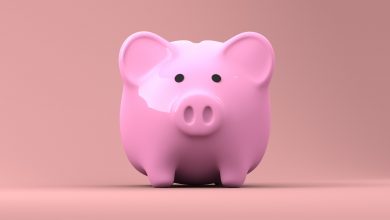
Settling a loan or a credit card balance is a great blessing. First of all, consumers don’t need to worry about making monthly payments. In fact, this can even translate into more savings. Secondly, regardless of which loan you pay off first, your credit score will undoubtedly increase. Third, a lower debt-to-income ratio may help you qualify for new loans or larger credit card balances. Nonetheless, choosing the best method to approach your debts is not easy.
Paying off a credit card when you need a mortgage loan, for instance, is not an ideal approach. Moreover, some paid off debts boost your credit more than others. Therefore, consumers should keep these factors in mind when choosing which loan to pay off first. In order to determine the best method, you could alternatively weigh settling the largest balance against getting rid of small, miscellaneous accounts. Since each approach has its own pros and cons, you should keep your objectives, desired credit balance, and budgeting needs in mind.
Align It With Your Goals
If you are working towards a certain objective, such as an auto loan or a mortgage, the best method is the one that allows you to attain that goal. To put it another way, you should consider both the credit score and loan type requirements when deciding on which loan to pay off first. For example, let’s assume that an existing and an aspiring car owner each want to get an auto loan. The former could pay off their current car lease, especially if they have a minimal amount left. Similarly, someone that wants to buy a car for the first time would settle a revolving line of credit or another loan type that has a similar payment cycle to a car lease.
Choosing the Best Method: Credit Score Needs and Application Requirements
This approach, in itself, highlights to lenders that you are a safe and responsible borrower. It is even more effective when you pay off a loan that helps you reach the relevant credit score for your desired type of funding. Some of them have a bigger impact on your score than others. For instance, paying off an installment loan too early may not boost your score as much as having a past-due balance removed from your credit report. Choosing which loan to pay off will depend on the score that you need. A mortgage, as an example, would require a credit score that’s in the mid 600s, while auto loans are relatively less strict.
In short, the loan that you pay off first should boost your score to the level that you need. At the same time, you should do so in a way that demonstrates your ability to pay back the specific type of funding that you are looking for (car, mortgage, credit card, …etc.). For more details about your credit score and different loan types, click here to read our article on the latest FICO and Vantage Score credit report updates.

Paying Off the Biggest Balance
The best method for you could be paying off loans that have a large monthly payment, especially when you have enough money to do so. This is important because it can reduce your monthly expenses. In turn, you will have more room to save or, alternatively, pay off other loans. Additionally, a smaller monthly bill reduces your debt-to-income ratio, another factor that most lenders will examine.
To illustrate, let’s look at an example. A recent college graduate makes $36,000 per year (or $3,000 per month). They also pay $50 per month on a credit card and another $200 goes towards a personal loan that the student took out while they were in college. Additionally, their tuition loan payment is $350 per month. In total, the recent graduate’s monthly debt payments are $600 and their debt-to-income ratio is one-to-five (or $600-to-$3,000). Let’s assume that the consumer only has $2,000 left to pay off on their personal loan. By taking care of it, their debt to income ratio will reduce to about one-to-eight (or $400-to-$3,000).
Because the recent graduate paid off the personal loan, they make relatively more money in comparison to how much they owe in debt. As a result, lenders are likely to approve them for a future loan (such as a mortgage or auto-lease) since they are confident about the consumer’s ability to honor the payments.
Starting Small
Making a lump-sum payment on a large loan is certainly difficult. After all, consumers are limited to the amount of money that they can put towards their debts. If paying off a sizable loan isn’t an option for you, there are other approaches. Alternatively, you could take care of one or more small credit balances. For a start, with less bills to pay, you’re unlikely to forget about them.
A recent survey, for example, shows that more people forget about making payments than those who can’t afford them. While 33% don’t pay on time due to financial/affordability reasons, 35% simply forget about their loan or credit card bill. Keep in mind that a few late payments can seriously damage your credit score. Just as importantly, with less loans on your mind, you will immediately notice the difference. This helps many people stay motivated and committed to their financial goals.

Choosing Which Loan to Pay Off
In short, there are three ways to determine which loan to pay off first. The initial approach is specifically suitable for consumers that have a specific goal. It allows them to attain the needed credit score and improve the likelihood of getting approved for a mortgage, auto-lease, or a bigger credit balance. The other two methods will help you organize your budget and find room for savings. By paying off the biggest loan first, your monthly payments will decrease and you’ll have more room for savings. Those who settle small, miscellaneous amounts, meanwhile, are less likely to forget about making payments.
At the end of the day, choosing the best method for you depends on your budgeting needs and goals. After all, what may be an ideal approach for one person isn’t necessarily helpful to another one.



